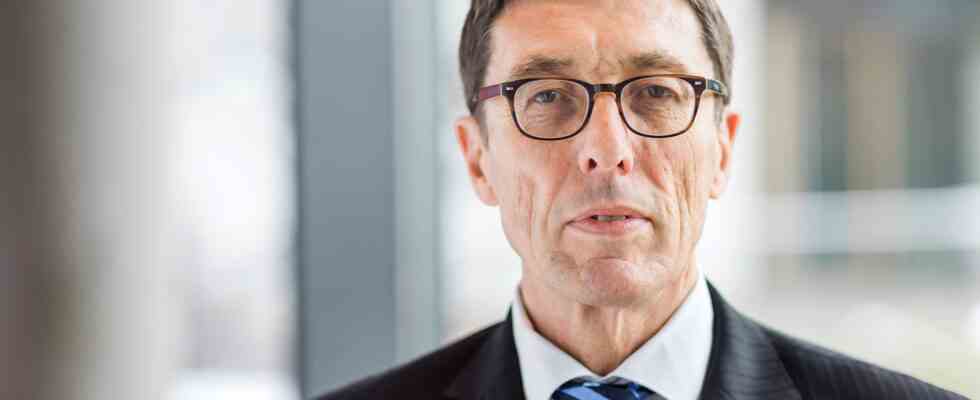Status: 07.02.2023 5:32 p.m
More and more pensioners, fewer and fewer contributors: Federal Social Court President Schlegel has made suggestions as to how the pension system could be reformed. He warns that if nothing is done, it will soon become a problem.
Rainer Schlegel has headed the Federal Social Court for more than six years – as President of the Court he has never minced his words. Not even on political issues. At the annual press conference of the Federal Social Court in Kassel, he made suggestions as to how the pension system could be reformed. He thinks this is sorely needed – otherwise the financial challenges of retirement would not be manageable.
The main problem is that in the future there will be fewer and fewer contributors and more and more pensioners. Statistically, in 1962 there were six contributors to one pensioner. In 2030 there would only be one and a half contributors. “It’ll be tough in 2030,” warns Schlegel, because that’s when the baby boomers, the generation with the highest birthrate, will retire.
Added to this would be the increased life expectancy of people in Germany. This has increased by around ten years since the 1960s, so pensioners are drawing their pension for significantly longer, according to Schlegel: “The crucial question is: How do we deal with it?”
Further increase the retirement age from 2030
When reforming, legislators should focus on further increasing the retirement age. The Bundestag had already decided in 2007 to gradually raise the entry age to 67 years. According to Schlegel, however, this is not enough. The entry age must be raised again by 2030 at the latest. However, Schlegel rejects the introduction of a pension at 70, as recently called for by some economists: “It is not politically feasible.”
It makes more sense to introduce a kind of automatism: If life expectancy increases, this should automatically lead to a proportionate increase in the entry age, for example if life expectancy is three months longer, by one month. Otherwise the only option would be to raise pension insurance contributions – or to cut pensions.
Many pensions are already very low
Schlegel thinks nothing of either. The current level of pensions is “not to be cheered for”. Anyone who has paid into the pension insurance for 45 years from an average salary – currently 43,142 euros a year – is now paid an average monthly pension of just 1620 euros gross. In the east, the average value is 1598 euros gross.
But the actual pensions are usually much lower: in 2021, only around 18 percent of men received a pension of 1,200 to 1,500 euros and only ten percent received a pension of 1,500 to 1,800 euros. The pension level for women in the West is again far below that.
Everyone should pay in – including civil servants and the self-employed
Another reform proposal by the court president is unlikely to meet with much approval, at least among certain workers who have so far been exempt from statutory pension insurance or who are not insured. In order to stabilize the system, the self-employed should also be included in the statutory pension insurance.
He demands the same for civil servants and for certain professional groups for which pension provision is organized through professional pension schemes, such as lawyers. Overall, it is about the protection of the individual and the protection of the general public from insufficient personal provision.
Pension only as a “basic supply”?
In addition, Schlegel suggested redefining what old-age provision should achieve. So far, the general goal of pensions has been to approximately secure the standard of living that you have worked for during your working life. Due to the massive changes and problems, this is no longer up to date and can hardly be achieved without sufficient private provision and without a company pension.
The new security goal of the statutory pension insurance must be that everyone “after a fulfilled professional life” can live reasonably well on their pension. Specifically, Schlegel spoke of a pension level that was 15 to 20 percent above the subsistence level. The statutory pension would then serve as a kind of basic pension. “The rest should be up to each individual.”
With this new security target, the contributions for the pension insurance would be lower – this would give people leeway to be able to pay for their own provision.
Schlegel pointed out that according to Article 33 of the Basic Law, the state still has a special duty of care towards its civil servants. The state must therefore guarantee civil servants a special supplementary pension scheme. For the liberal professions, this task would be assigned to the previous professional pension schemes.

